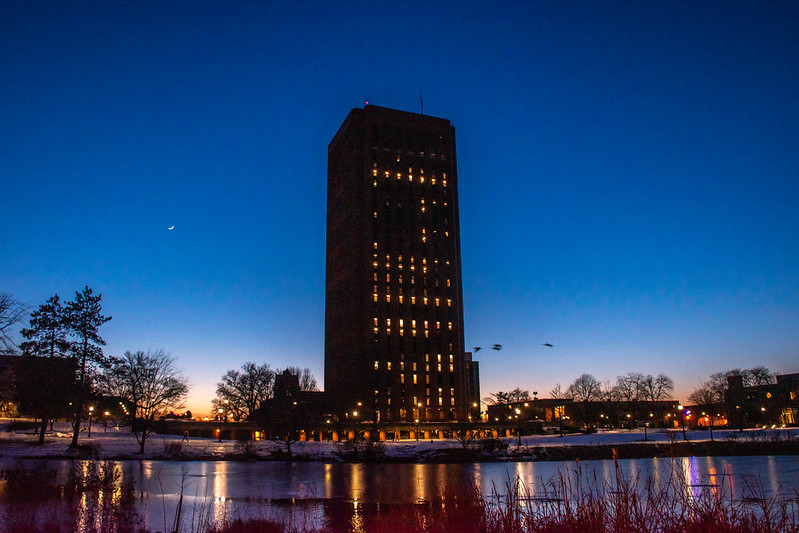The annual W.E.B. Du Bois Lecture was held on Thursday, March 23, at the W.E.B. Du Bois Library. Speaker Chad Williams presented and discussed Du Bois’s exploration into the African American experience during the first World War and his unpublished collection of stories.
The library holds Du Bois’ archival collections, which contains over 100,000 items and is one of the most extensive collections of any African American figure of the early 20th century.
“The library organized annual lectures named for Du Bois … it sort of cements our commitment to not just preserving the Du Bois papers and bringing scholars in but also taking that resource and scholars and giving it to a wide audience,” Adam Holmes, the assistant director of the W.E.B Du Bois Center, said.
The lectures have been held for 28 years and offer a glimpse into the archives and interpretation of his work. Each year, the W.E.B Dubois Center invites a new guest speaker to talk about Du Bois and his impact.
This year’s lecture featured Dr. Chad Williams. Williams is the Samuel J. and Augusta Spector Professor of History, African American and African studies at Brandeis University. Williams specializes in African American studies in modern United States and the World War I era.
His new book, “The Wounded World: W.E.B Du Bois and the First World War,” will be released on April 4.
“We knew that Chad had a book coming out … which is the subject of this talk, and we already knew Chad by reputation — we’d met him once in the [Du Bois] Center — he came to do research on the Du Bois papers. Chad was very much an obvious candidate; we were thrilled when he said yes,” Holmes said.
Williams’ presentation focused on the struggles Du Bois endured during and after the war as well as his unfinished manuscript examining the treatment of African Americans during the war.
“The beginning of my research on Du Bois began at UMass Amherst in the archives finding an unfinished and unpublished manuscript by Du Bois on the Black experience in World War I,” Williams said.
Williams’ book is supported by the manuscript he found in the archives and provides insight into the “intellectual shell shock” Du Bois experienced after the war ended. He frequently pulled information from Du Bois’ correspondence with the National Association for the Advancement of Colored People (NAACP).
“I can say solemnly and without hesitation: the greatest and most pressing and most important work for the NAACP is the collection writing and publication of the history of the Negro troops in France” Du Bois said in a letter to the NAACP after visiting France and seeing the devastation many of the troops faced.
“The main thing I want to get across is the significance of World War I in W.E.B Du Bois’ life, his work and also the broader significance of World War I in the struggle for Black freedom and democracy in the 20th century,” Williams said before his presentation.
The annual lecture is important to the Du Bois Center, as it lets the collection be seen and added to by scholars and speakers.
“This is why [Du Bois] collected an archive. He knew his work was going to be important, was going to be studied, was going to inform the work of other scholars that came after him of other activists who came after him,” Holmes said.
Alexandra Hill can be reached at [email protected].




















